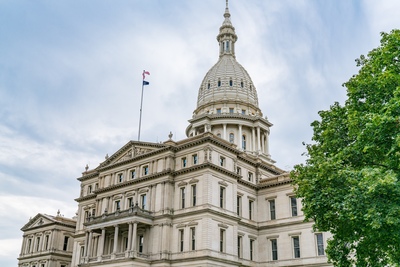
Compliance
How A Supreme Court Decision Changed Federal Public Corruption Prosecutions (Why State and Local Laws Matter)
January 7, 2026 | Ben Seitelman, Bradley Coffey
September 8, 2025 | Lauren Calhoun
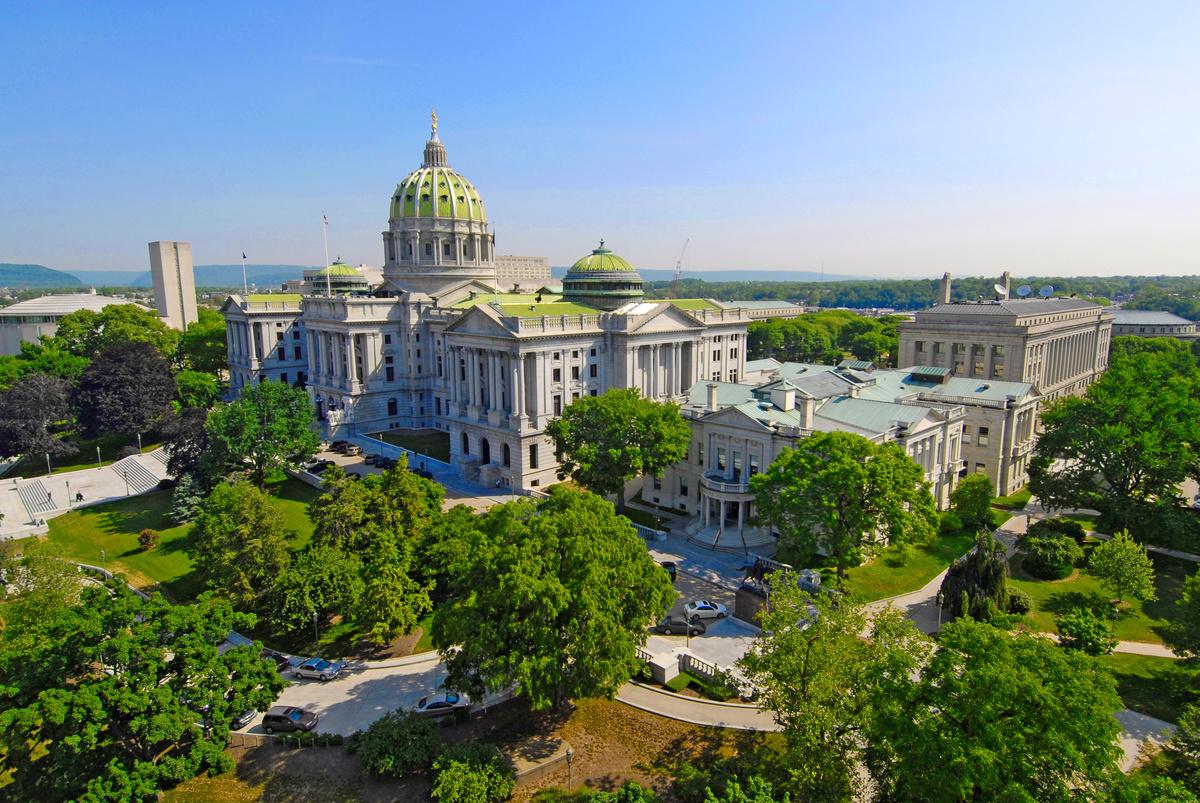
Key Takeaways:
In part 1 of this guide , we reviewed some common types of contributions that may require lobbyist disclosure. In this article, we review some of the common and not-so-common regulations governing lobbyist political activity in the states.
While the types of contributions [link Part I article] may be fairly straightforward, complexity arises as each state has its own set of rules and contribution thresholds, making it essential for lobbyists to stay well-informed about regulations in the jurisdictions they are active in.
In 11 states, political contribution reporting is required as part of periodic disclosure reporting. In some instances, such as with contribution reporting in Maryland, both the lobbyist and employer are required to disclose political contributions made in periodic disclosure reports. Additionally, federal lobbyists are also required to report contributions in periodic disclosure reports.
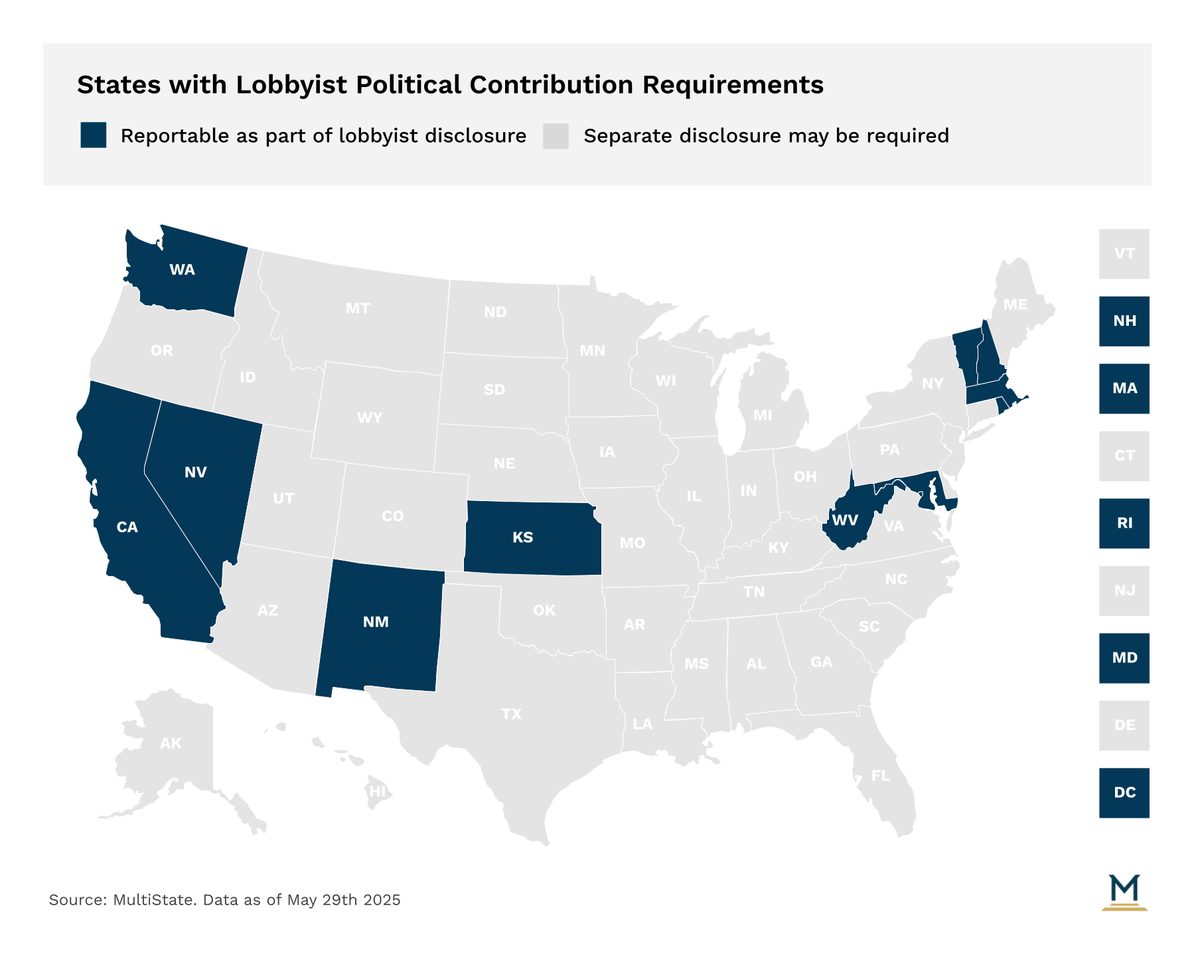
Several states regulate the timeframes during which lobbyists can contribute to political campaigns. Additionally, black-out periods may be in effect if the legislature is called into special session. Blackout periods may even extend beyond the regular or special session in certain states; for example, Minnesota prohibits the purchase of event tickets outside of the blackout period if the campaign event occurs during the legislative session.
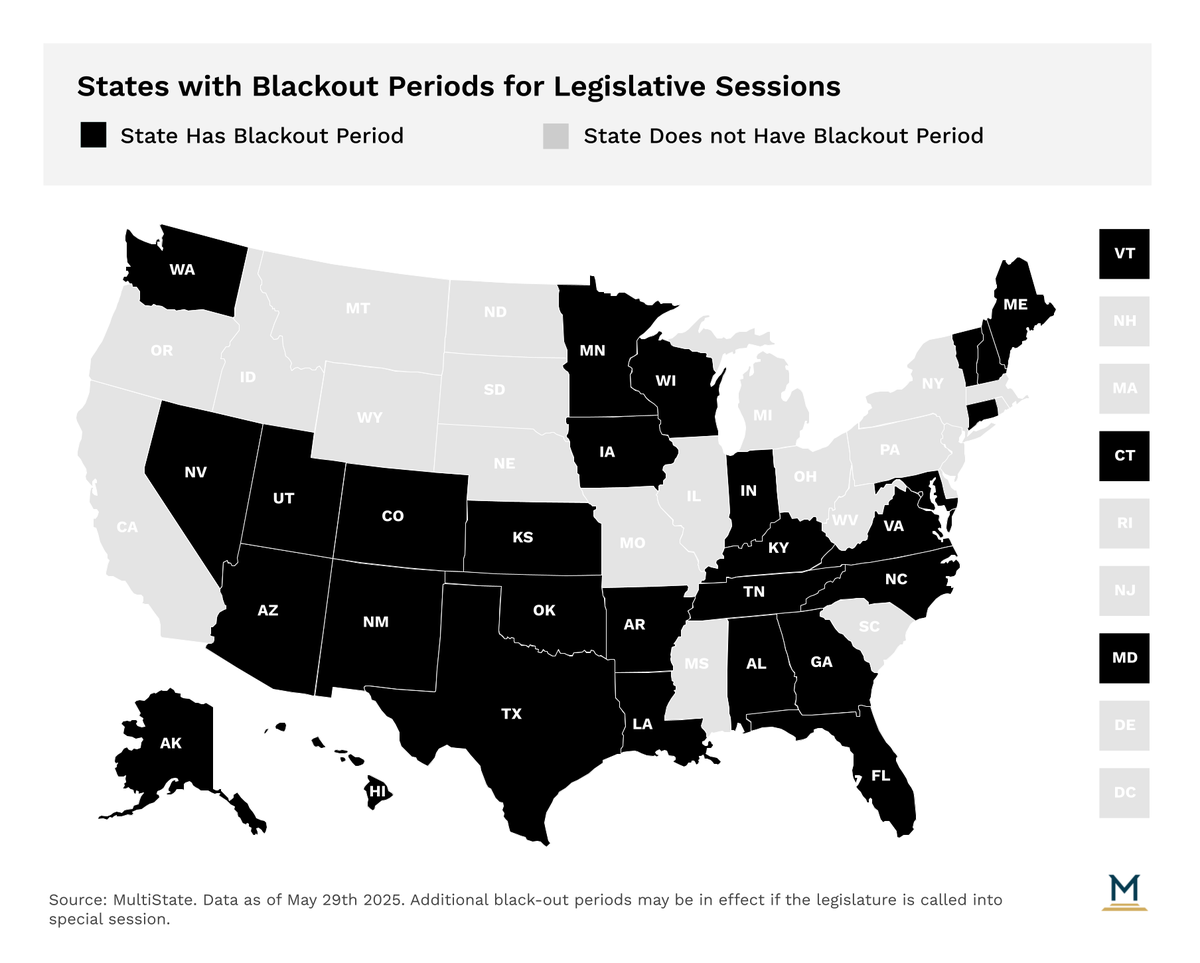
Some states impose strict limits on the amount lobbyists can contribute. For instance, both Massachusetts and Connecticut have clearly defined caps on lobbyist contributions. Additionally, some states prohibit lobbyist contributions or have stipulations on giving, such as a lobbyist can not make a contribution to an official they are registered to lobby. 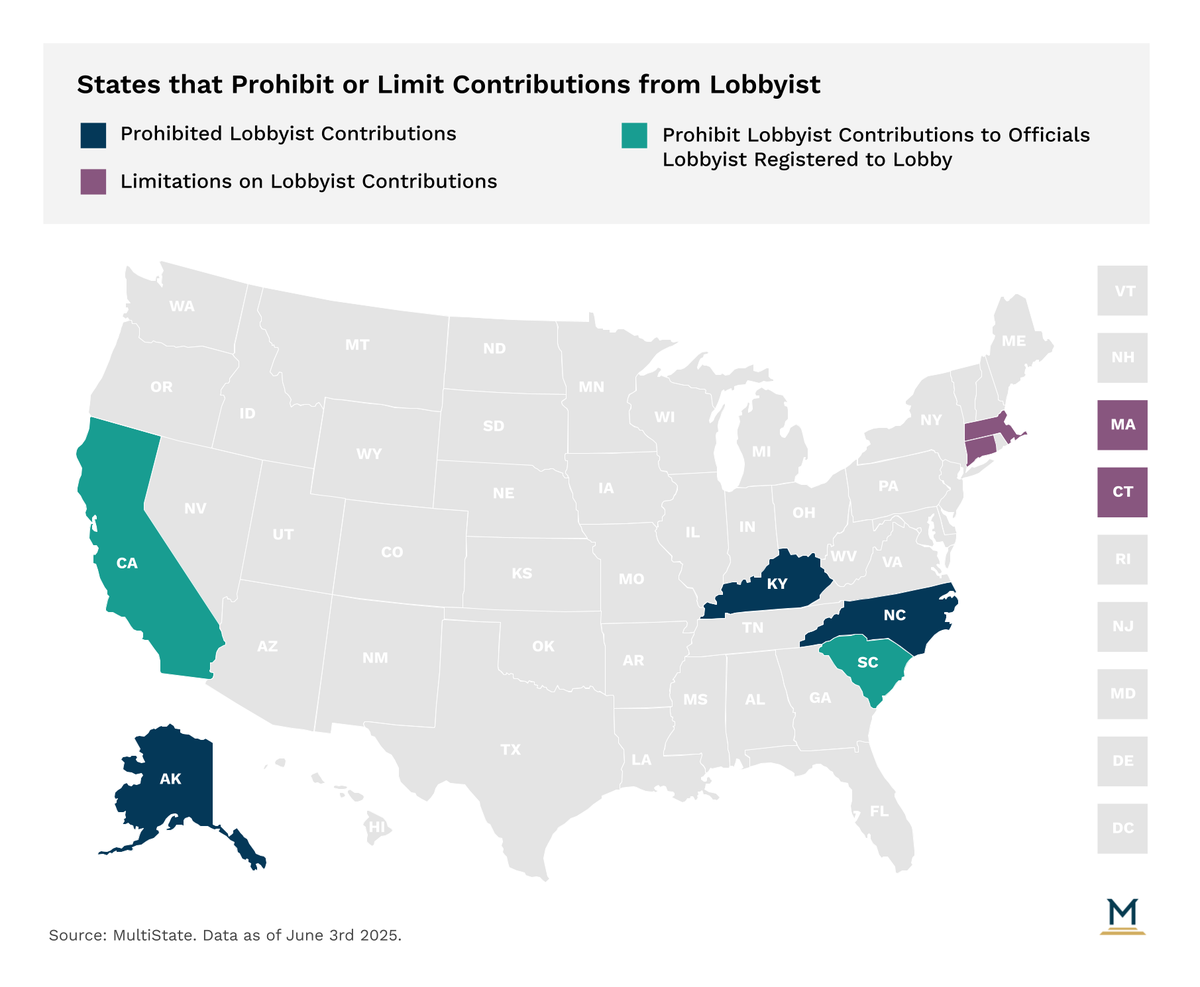
Some states have extra regulations for lobbyists representing lottery clients and oftentimes the lobbyist for those clients face stricter contribution limits and prohibitions due to potential conflicts of interest and concerns about undue influence on government run gambling enterprises. States like Nebraska require lobbyists to register specifically as a lottery lobbyist and disclose their client’s role in lottery operations on top of periodic disclosures. New Jersey maintains strict limits and prohibitions on contributions from gaming interests, banning political contributions from casino license applicants or holders, their holding, intermediary, or subsidiary companies, officers, directors, and key or principal employees of these entities, or anyone acting on their behalf. Additionally, there are several other states that have unique rules around lobbying and lottery. For example, Kentucky's lottery corporation is barred, directly or indirectly, from establishing, participating in, or funding a political action committee. Furthermore, individuals with lottery contracts exceeding $50, including their staff, executives, shareholders, or associates, may not provide funds, services, or anything of value to lottery officials or to those who appoint them, specifically if the aim is to sway or compensate for contract awards. It is important to note, however, that this restriction does not affect legitimate political campaign donations that are otherwise permitted.
In addition to existing bans and restrictions, states are making efforts to further regulate (or de-regulate) or ban political contributions from lobbyists in this sector. In 2024, Alabama introduced House Bill 152, which would have prohibited political contributions from gambling-related entities and certain employees in state races; however, the bill ultimately failed. That same year, the Maryland General Assembly considered House Bill 132, the Sports Wagering Campaign Contributions Parity Act of 2024, which sought to repeal the ban on campaign contributions by applicants for and holders of video lottery operation licenses, as well as those with financial interests in video lottery facilities. The bill received a committee hearing but did not advance. Meanwhile, in Louisiana, lawmakers attempted to repeal a longstanding 1996 ban on political contributions from casinos to candidates, but that effort was also unsuccessful. These examples highlight the ongoing legislative debate nationwide over how best to balance industry influence with transparency and integrity in campaign finance.
Certain states even prohibit contributions from being made within specific locations, such as government buildings or legislative zones. Location based restrictions are usually designed to prevent the appearance or pay-to-play politics on or near government property. Two notable states that have location based limitations include Illinois and California. Under Illinois campaign finance law, it is unlawful to make or receive campaign contributions on state property. This includes the state capitol, agency buildings, and any other property under control of the state government. California similarly restricts soliciting or receiving contributions in certain government spaces, specifically in Sacramento County, where the state Capitol is located and there are added limits for contributions within state government buildings during legislative sessions, including fundraisers.
Pennsylvania is a particularly unique case where lobbyists giving campaign contributions exceeding a certain threshold ($250 in aggregate as of August 2025), they are no longer just a lobbyist, they are considered a political committee and must register and report as such. After registering as a political committee the lobbyist must file separate campaign finance reports, and adhere to additional compliance requirements just as a political action committee would.
New to campaign finance? To explore more on campaign finance terms and definitions, check out our article on common terms in campaign finance. Additionally, come back next week when we dive into common (and some not-so-common) important regulations governing contributions made by lobbyists.
Keeping up with rules, deadlines, and often confusing requirements is a daunting prospect for teams of all sizes. Let us manage your federal, state, and local registration and reporting responsibilities, or manage your Campaign Finance program. Read more about our Compliance Services here, or get in touch here.

January 7, 2026 | Ben Seitelman, Bradley Coffey
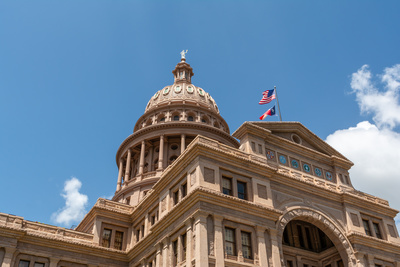
January 5, 2026 | Chase Klingensmith, Dylan Busler
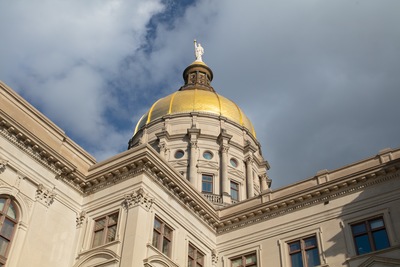
December 3, 2025 | Chase Klingensmith